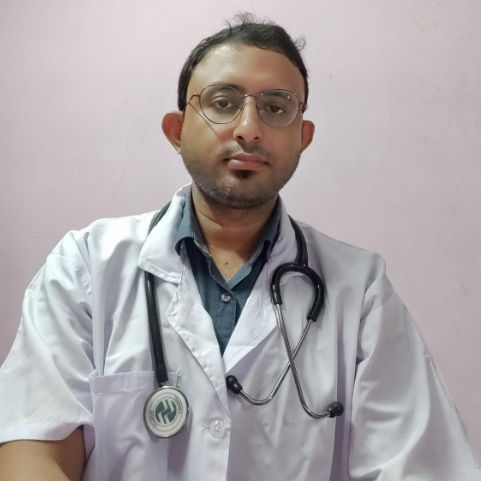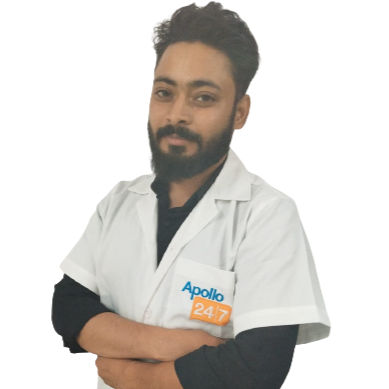Acne vulgaris is the medical term for acne. It is one of the most prevalent skin conditions, affecting millions of people worldwide. It can occur at any age, although it is most commonly associated with teenagers and young adults. Acne can appear on the face, chest, back, shoulders, and even upper arms, leading to emotional distress and diminished self-esteem for many individuals. Thankfully, with the right approach, acne vulgaris can be managed effectively. In this article, we will explore the causes, types, and available treatments for acne vulgaris and provide actionable advice to help you take control of your skin health.
What is Acne Vulgaris?
Acne vulgaris is a chronic inflammatory skin condition that occurs when hair follicles become clogged with oil (sebum), dead skin cells, and sometimes bacteria. The sebaceous glands, which are connected to hair follicles, produce sebum to lubricate the skin. However, excess sebum production can block the pores, leading to acne.
Acne can manifest in several forms, including:
Comedones (blackheads and whiteheads): These are non-inflammatory lesions caused by clogged pores. Blackheads are open comedones, while whiteheads are closed.
Papules and Pustules: These are inflamed lesions that appear red and can be filled with pus.
Nodules and Cysts: These are deeper, more painful bumps beneath the skin that can result in scarring if not treated properly.
What Causes Acne Vulgaris?
The exact cause of acne vulgaris is multifactorial, but several key factors contribute to its development. These include:
Excess Sebum Production: Overactive sebaceous glands are one of the main contributors to acne. Hormonal changes, particularly during puberty, pregnancy or menstruation, can stimulate the production of excess oil.
Clogged Pores: When dead skin cells accumulate within hair follicles, they can mix with sebum and form a plug, which can lead to acne. This can happen due to poor skin hygiene, excessive facial touching, or the use of comedogenic (pore-clogging) skin products.
Bacterial Growth: The skin naturally hosts bacteria like Propionibacterium acnes (P. acnes), which thrive in clogged pores. This bacterial overgrowth can lead to inflammation and the formation of pus-filled pimples.
Hormonal Fluctuations: Hormonal changes, particularly during puberty, menstruation, and pregnancy, can increase sebum production. Hormonal imbalances due to conditions like polycystic ovary syndrome (PCOS) can also exacerbate acne.
Genetics: A family history of acne can increase one's risk of developing the condition. If one's parents had acne, one may be more likely to experience it.
Diet and Lifestyle Factors: Certain foods, such as dairy, refined sugars, and high-glycemic-index foods, may contribute to acne development in some individuals. Stress, poor sleep, and environmental pollution can also trigger breakouts.
Medications and Other Factors: Some medications, like corticosteroids, lithium, and certain birth control pills, may increase the likelihood of developing acne. Additionally, wearing tight clothing or using oil-based cosmetics can aggravate the condition.
Types of Acne Vulgaris
Acne vulgaris can vary in severity, and it is classified into four types based on the types of lesions present:
Mild Acne: Characterized by occasional blackheads or whiteheads with minimal inflammation. This type typically does not cause scarring.
Moderate Acne: Involves more frequent pimples, pustules, and papules. The inflammation is more noticeable, and if left untreated, it may cause some scarring.
Severe Acne: Includes large cysts and nodules that are painful, deep, and often leave scars. It can significantly affect a person’s quality of life.
Cystic Acne: A severe form of acne where painful, cyst-like nodules develop beneath the skin's surface. Cystic acne is more likely to cause permanent scarring.
Acne Vulgaris Treatment Options
While acne vulgaris can be persistent, a variety of treatments can help control symptoms, reduce breakouts, and prevent long-term scarring. Treatment may involve topical treatments, oral medications, or a combination of both. Here are the most common and effective treatments:
1. Topical Treatments
Topical treatments are applied directly to the skin and can help manage mild to moderate acne. Some of the most common topical treatments include:
Benzoyl Peroxide: This is one of the most widely used ingredients for acne treatment. It helps to reduce acne-causing bacteria and decrease inflammation. It can be found in various forms, including creams, gels, and cleansers.
Salicylic Acid: A beta-hydroxy acid (BHA), salicylic acid works by exfoliating the skin and unblocking pores. It is often found in acne face washes, toners, and spot treatments.
Retinoids (Retinol, Tretinoin): These are derived from Vitamin A and help speed up cell turnover, preventing clogged pores. They are often prescribed for more persistent cases of acne. Retinoids may initially cause dryness or irritation but are highly effective for long-term acne management.
Topical Antibiotics: These reduce inflammation and bacterial growth on the skin. Clindamycin and erythromycin are commonly used to treat moderate acne.
Azelaic Acid: It is a less common but effective treatment that kills acne-causing bacteria and reduces inflammation. It can also help with pigmentation and scarring.
2. Oral Medications
Oral medications may be necessary to reduce inflammation, bacterial growth, and excess sebum production in moderate to severe acne.
Oral Antibiotics: These are often prescribed to reduce the growth of P. acnes bacteria and lower inflammation. Common oral antibiotics for acne include doxycycline, tetracycline, and minocycline.
Hormonal Therapy: For women, birth control pills containing estrogen and progestin can help regulate hormones that trigger acne. Spironolactone, a medication that blocks androgen hormones, can also be effective in managing acne caused by hormonal imbalances.
Isotretinoin (Accutane): Isotretinoin is a potent oral retinoid reserved for severe acne that doesn’t respond to other treatments. It works by shrinking sebaceous glands, reducing oil production, and preventing clogged pores. It is highly effective but has significant side effects and requires close monitoring by a dermatologist.
3. Advanced Treatments
For individuals with severe acne or acne scarring, more advanced treatments may be necessary:
Chemical Peels: These treatments involve applying a chemical solution to the skin to exfoliate the top layers and unclog pores. Chemical peels can help reduce both active acne and post-acne scars.
Laser Therapy: Laser treatments, such as fractional laser or blue light therapy, target acne-causing bacteria and reduce oil production. They can also improve the appearance of scars.
Microneedling: This procedure uses tiny needles to create micro-injuries in the skin, stimulating collagen production and improving the appearance of acne scars.\
Managing Acne: Lifestyle Tips and Self-Care
Along with medical treatments, lifestyle changes can help you better manage acne and prevent breakouts. Here are some helpful tips:
Gentle Skincare Routine: Use a gentle cleanser that doesn't strip your skin of essential moisture. Avoid harsh scrubbing or over-cleansing, which can irritate your skin and worsen acne.
Avoid Touching Your Face: Picking or squeezing pimples can introduce more bacteria to the skin and lead to scarring. Try to resist the urge to touch your face.
Use Non-Comedogenic Products: Choose skincare and makeup products labelled as "non-comedogenic," which means they won’t clog pores.
Maintain a Healthy Diet: While diet alone may not be the root cause of acne, a balanced diet with plenty of fruits, vegetables, and whole grains can support overall skin health. If you notice that dairy and high-sugar foods trigger breakouts, try to limit them.
Manage Stress: Chronic stress can worsen acne. Try to incorporate stress-reducing activities, such as yoga, meditation, or regular exercise, into your daily routine.
Stay Hydrated: Drinking plenty of water helps maintain healthy skin and supports the body's natural detoxification processes.
Conclusion
Acne vulgaris is a common condition that can affect anyone but is treatable. Whether you are dealing with occasional pimples or more severe cystic acne, there are effective treatments available to help you regain control of your skin. By understanding the causes of acne, exploring your treatment options, and implementing self-care strategies, you can manage acne and reduce its impact on your life. Always consult with a dermatologist for personalised advice and treatment tailored to your skin's needs. With the right approach and patience, clearer skin is within reach!
Consult Top Dermatologist References

Dr. Hemalatha Naidu M
Dermatologist
5 Years • MBBS, MD (Dermatology)
Bangalore
Apollo 24|7 Virtual Clinic - Karnataka, Bangalore
(150+ Patients)

Dr Ritika Shanmugam
Dermatologist
6 Years • MBBS, MD (Dermatology, venereology, Leprosy)
Bangalore
Apollo 24|7 Virtual Clinic - Karnataka, Bangalore

Dr. K Chetana
Dermatologist
13 Years • MBBS, MD ( Dermatology)
Hyderabad
Apollo 24|7 Virtual Clinic - Telangana, Hyderabad
(25+ Patients)

Dr. Madhab Datta
Dermatologist
5 Years • MBBS, MD (DVL)
Kolkata
Dr. Madhab Datta's Clinic, Kolkata

Dr. Himadri Sinha
Dermatologist
6 Years • BDS, FMC
New Town
AESTHETICAROOTS, New Town
